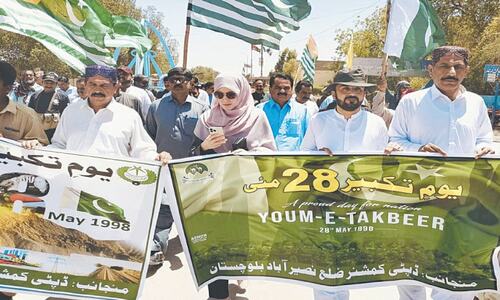DEHRADUN: An Indian state on Wednesday passed a common civil code to replace religious laws, with supporters saying it protected women’s rights but critics fearing it heralds a countrywide rollout by the Hindu nationalist ruling party.
The Uniform Civil Code (UCC) law, passed in state of Uttarakhand, has reignited a polarising debate. Critics see it as a signal from the ruling BJP to its base and a promise to implement the UCC nationally after elections expected in April that it is already tipped to win.
Muslim leaders say the UCC challenges Islamic laws on divorce, marriage and inheritance. “We cannot accept any law that is against Shariah”, said Arshad Madani, from the Jamiat Ulama-i-Hind, a conservative Muslim social organisation.
“We want our marriage system to be governed by the Holy Quran,” said Asma Zohra, who heads the All-India Muslim Women Association.
Uttarakhand CM says the law will be an example for other states to follow
“The issue of child marriage can be handled through societal reform, not by imposing a law without consulting us.” Other clauses also sparked objections, including the registration of partners living together.
“The compulsory registration takes away the freedom to choose not being married,” senior lawyer Geeta Luthra told newspaper the Indian Express. The state “should not enter into the realm of what citizens do consensually”, Luthra added.
Uttarakhand Chief Minister Pushkar Singh Dhami, speaking before the bill was approved, said it would end “ill practices” and “provide equal rights to all”.
Supporters of the law say it gives Muslim women the same rights as others by ending polygamy, setting equal property inheritance rights for sons and daughters, and requiring divorce processes take place before a civil court.
The law fixes the minimum age of marriage at 18 for women and 21 for men, and makes it mandatory to register live-in heterosexual relationships — or face a three-month jail term or a fine.
Modi’s BJP has long campaigned for standardised civil laws but that has fuelled tensions, especially among minority Muslims.
“History is being created,” added CM Dhami, leader of a state with some 12 million people, roughly 80 per cent of them Hindu. “It will present an example for other states.”
Published in Dawn, February 8th, 2024













































Dear visitor, the comments section is undergoing an overhaul and will return soon.